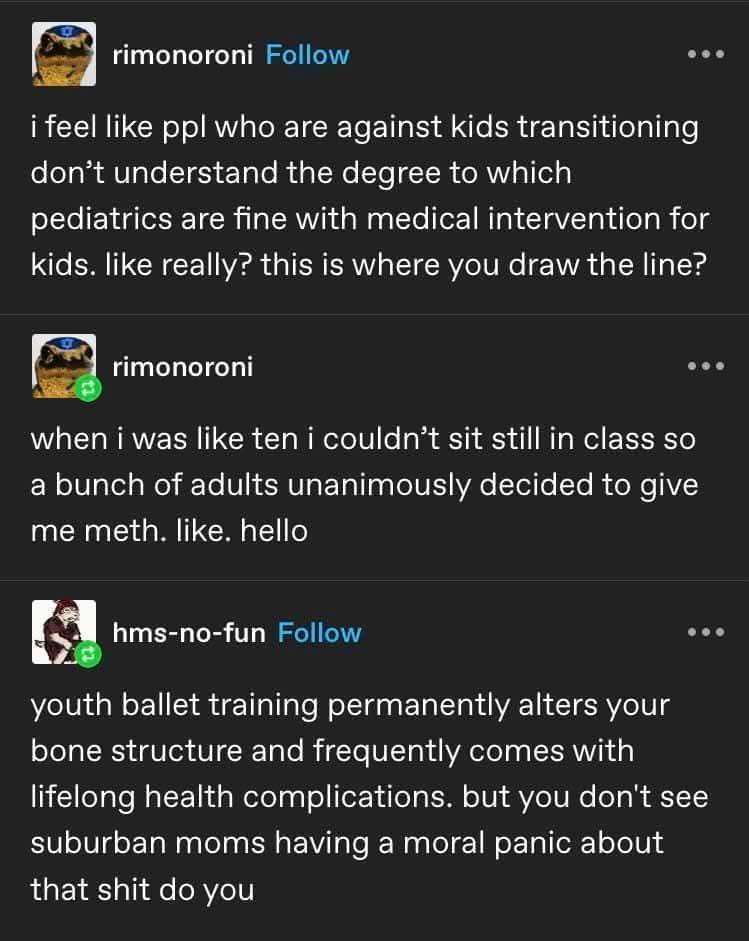I don't think many people working outside pediatric healthcare really have an understanding about how comfortable healthcare providers are prescribing interventional care.
When diagnosing and treating a patient we come up with a plan of care that is weighted on total outcomes. Now this isn't a perfect system, for example we may not completely understand the potential harm of new medications. However, we are creating the plan of care with the best information we have at the time. Taking potential side effects and weighing it against the potential harm that could occur without any treatment.
I specialize in pediatric orthopedics and rehabilitation....so take anything I say about gender affirming care with a grain of salt. However, the potential outcome for not treating gender dysphoria as I understand it is pretty bad....self harm and suicide are about as bad as an outcome as one could imagine. Now weigh that against the medications that are usually prescribed for gender affirming care which are well known, and most often prescribed without negative effect for a plethora of treatments ranging from precocious puberty, to monitoring rate of which growth plates close.
Hormone replacement therapy has been going on for decades and is very common place at any hospital that atends to pediatric patients. To claim that intervention isn't appropriate for something with a potential total outcome as bad as suicide, based off "kids can't consent" is a ridiculous notion considering that the same drugs are often prescribed to make sure a child doesn't develop a limb length discrepancy after an orthopedic surgery.

